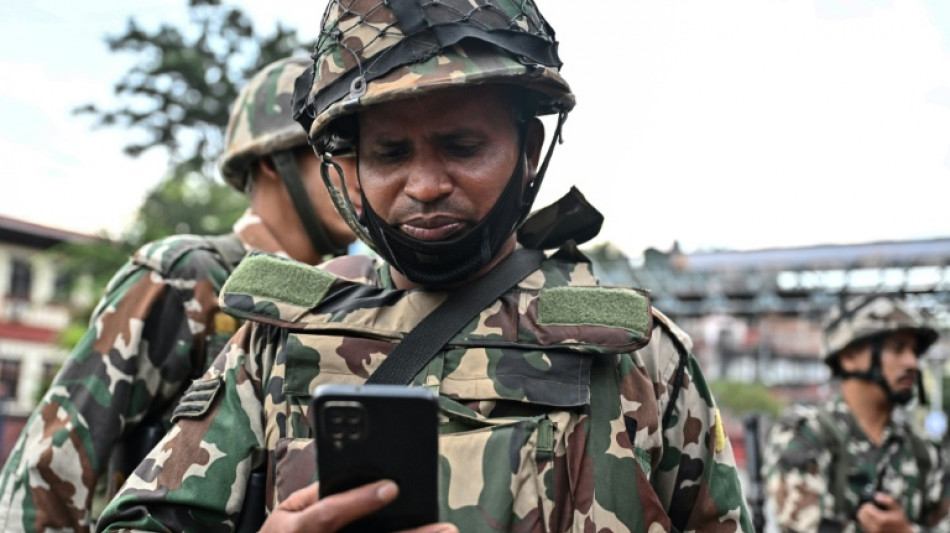
-
 Board of Spain's Sabadell bank rejects BBVA takeover bid
Board of Spain's Sabadell bank rejects BBVA takeover bid
-
Hunt for shooter of Charlie Kirk enters third day in US

-
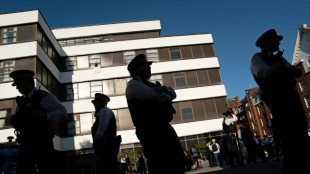 'Volatile': Londoners and asylum seekers on edge due to protests
'Volatile': Londoners and asylum seekers on edge due to protests
-
New David Bowie museum unmasks the man behind the make up

-
 Man Utd keeper Onana joins Trabzonspor on loan
Man Utd keeper Onana joins Trabzonspor on loan
-
UK economy stalls in July in fresh government setback
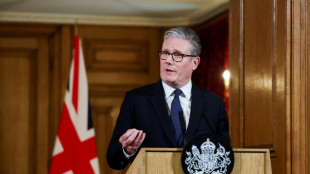
-
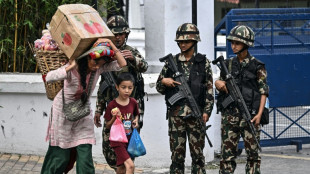 Nepal seeks new leader as army reclaims streets after protest violence
Nepal seeks new leader as army reclaims streets after protest violence
-
Indonesia seizes part of nickel site over forest violations

-
 Stocks rally into weekend with US rate cut 'seemingly locked in'
Stocks rally into weekend with US rate cut 'seemingly locked in'
-
Springboks, Pumas out to keep Rugby Championship hopes alive

-
 Scrutiny on Thai zoo grows after lion attack
Scrutiny on Thai zoo grows after lion attack
-
UK economy stalls in July
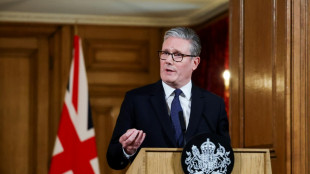
-
 Charlie Kirk's killing: what we know
Charlie Kirk's killing: what we know
-
S. Korean workers arrive home after US detention

-
 US tariffs deal stokes 'monster' pick-up fears in Europe
US tariffs deal stokes 'monster' pick-up fears in Europe
-
Saint Lucia's Alfred says Olympic gold shows talent counts, not your passport

-
 Springboks hard man Wiese to take the All Blacks head-on
Springboks hard man Wiese to take the All Blacks head-on
-
Tinch's journey to be hurdles title contender sparked by stepdad's joke

-
 Russia, Belarus start military drills as West watches warily
Russia, Belarus start military drills as West watches warily
-
UN General Assembly to vote on a Hamas-free Palestinian state
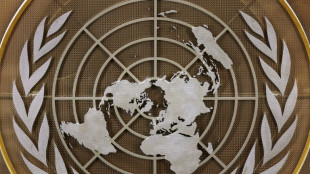
-
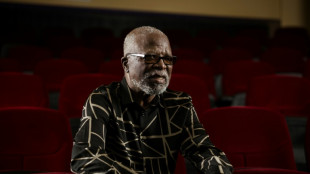 For theatre legend John Kani, art must 'speak truth to power'
For theatre legend John Kani, art must 'speak truth to power'
-
Ukraine's energy strikes hit Russians at the pump

-
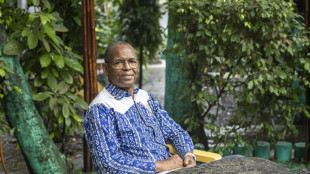 Guinea's Tierno Monenembo: stolen words and diehard critic of military rule
Guinea's Tierno Monenembo: stolen words and diehard critic of military rule
-
Norman says 'we changed the game' as he officially departs LIV Golf

-
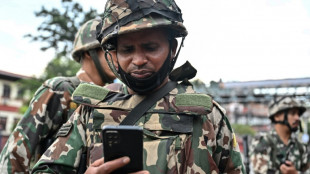 From Discord to Bitchat, tech at the heart of Nepal protests
From Discord to Bitchat, tech at the heart of Nepal protests
-
Crawford chases history in super middleweight title showdown with Alvarez

-
 'I chose myself': Israeli transgender ref's journey to the top
'I chose myself': Israeli transgender ref's journey to the top
-
'No pressure' for teen Lutkenhaus, Team USA's youngest worlds athlete

-
 De Minaur vows to 'make life difficult' for Belgium in Davis Cup
De Minaur vows to 'make life difficult' for Belgium in Davis Cup
-
Inoue out to prove pound-for-pound credentials against Akhmadaliev

-
 Manchester derby offers chance to salve wounds, Isak prepares for Liverpool bow
Manchester derby offers chance to salve wounds, Isak prepares for Liverpool bow
-
Love, Kraft star as Packers cruise past Commanders 27-18

-
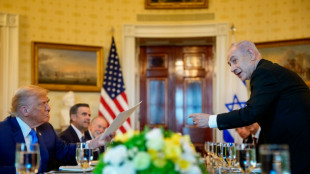 Trump's push for peace prize won't sway us, says Nobel committee
Trump's push for peace prize won't sway us, says Nobel committee
-
Wallabies skipper says wounded Argentina 'a scary proposition'

-
 'Your own brother': Student supporters mourn Charlie Kirk
'Your own brother': Student supporters mourn Charlie Kirk
-
Asian stocks surge into weekend with US rate cut 'seemingly locked in'

-
 Canada's Hughes seizes one-shot lead in PGA Procore Championship
Canada's Hughes seizes one-shot lead in PGA Procore Championship
-
'Severance' vs. 'The Pitt' at television's Emmy Awards

-
 Russia, Belarus to stage military drills as West watches warily
Russia, Belarus to stage military drills as West watches warily
-
S. Korea workers head home after US immigration raid

-
 Chivu's Inter still a work in progress ahead of Juve clash
Chivu's Inter still a work in progress ahead of Juve clash
-
Hamburg visit Bayern as one of Germany's biggest rivalries returns

-
 Backed by BlueCo, Strasbourg spend big and aim high
Backed by BlueCo, Strasbourg spend big and aim high
-
Bordeaux-Begles' Woki says he matured at Racing ahead of return

-
 Familiar foes face off in Women's Rugby World Cup quarter-finals
Familiar foes face off in Women's Rugby World Cup quarter-finals
-
Barca Liga homecoming against Valencia reduced to tiny stadium

-
 Carmakers to push EU for 2035 combustion-engine ban rethink
Carmakers to push EU for 2035 combustion-engine ban rethink
-
Canadian players acquitted in assault case can return to NHL December 1

-
 Empire Metals Limited Announces Exercise of Options
Empire Metals Limited Announces Exercise of Options
-
Agronomics Limited Announces Clean Food Group Update
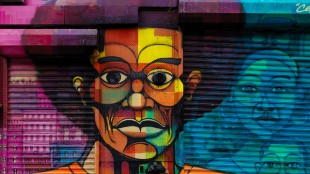

From Discord to Bitchat, tech at the heart of Nepal protests
From sparking protests that toppled the prime minister to giving young people a platform to discuss their country's political future, social media was key to Nepal's extraordinary uprising this week.
Fuelled in part by anger over flashy lifestyles flaunted by elites, young anti-corruption demonstrators mainly in their 20s rallied on Monday.
The loose grouping, largely viewed as members of "Gen Z", flooded the capital Kathmandu to demand an end to a ban on Facebook, YouTube and other popular sites.
The rallies ended in chaos and tragedy, with at least 19 protesters killed in a police crackdown on Monday. The apps were restored, but protests widened in anger.
On Tuesday, other Nepalis joined the crowds. Parliament was set ablaze, KP Sharma Oli resigned as prime minister, and the army took charge of the streets.
Now, many activists are taking to the US group-chat app Discord to talk over their next steps.
One server with more than 145,000 members has hosted feverish debate about who could be an interim leader, with many pushing 73-year-old former chief justice Sushila Karki.
It is just one example of how social media has driven demands for change.
- 'Fuelled the fire' -
More than half of Nepal's 30 million people are online, according to the World Bank.
Days before the protests, many had rushed to VPN services -- or virtual private networks -- to evade blocks on platforms.
Fears of a wider internet shutdown also drove a surge in downloads for Bluetooth messaging app Bitchat, created by tech billionaire Jack Dorsey.
"Tech played... an almost decisive role," journalist Pranaya Rana told AFP.
"The whole thing started with young people posting on social media about corruption, and the lavish lives that the children of political leaders were leading."
Hashtags such as #NepoKids, short for nepotism, compared the designer clothing and luxury holidays shown off in their Instagram posts to the difficulties faced by ordinary Nepalis.
One post liked 13,000 times accused politicians' children of "living like millionaires", asking: "Where is the tax money going?"
"NepoKids was trending all the time," including in rural areas where Facebook is popular, said rights activist Sanjib Chaudhary.
"This fuelled the fire" of anger that "has been growing for a long time", he said.
- 'Seriously underestimated' -
Deep dissatisfaction lies behind the social unrest in the Himalayan nation, among young people exasperated with slow economic development and political instability.
The government's social media ban "wasn't trying to suppress" the NepoKids trend, but the timing meant people "saw it as an attack on their freedom of speech", Rana said.
A week ago, Nepal said it would block access to 26 social media platforms, from Facebook to X and LinkedIn, for failing to meet a deadline to register in the country.
Those that had registered, including TikTok and Viber, remained online.
Nepal has restricted access to online platforms in the past, including Telegram in July.
Last year, the government lifted a nine-month ban on TikTok after it agreed to comply with Nepali regulations.
The government wanted companies to give them the power to "prohibit broad categories of speech such as 'misinformation' or content deemed to disrupt 'social harmony'", Felicia Anthonio from the US digital rights group Access Now told AFP.
Swiss-based company Proton VPN said Monday that sign-ups from Nepal had shot up 6,000 percent in three days.
Interest rose in Dorsey's Bitchat platform, which works offline and describes itself as way to resist censorship.
"There when you need it," wrote Dorsey on X, citing a post describing a "sudden spike" in Bitchat downloads during the protests in Indonesia and Nepal.
Chaudhary said the government "seriously underestimated the power of social media".
P.Martin--AMWN